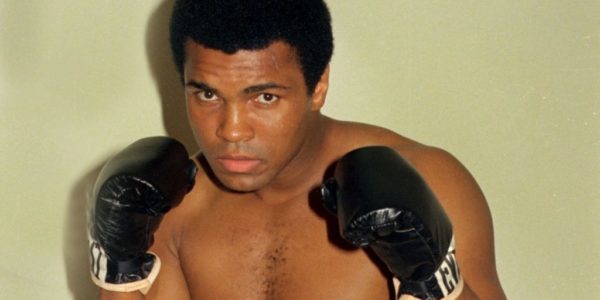
Trump said that “instead of talk,” he is going to ask protesting players to suggest “people that they think were unfairly treated by the justice system.” The president said football players have “seen a lot of abuse” and “a lot of unfairness” and that he wants their input on his use of this executive power.
Trump told reporters as he left the White House for a meeting in Canada with U.S. allies that his team was “looking at literally thousands of names” of people for potential pardons because they were treated unfairly or their sentences are too long.
Ali is one name on this list.
Ali was born Cassius Clay, and changed his name after converting to Islam in the 1960s. He refused to serve in the Vietnam War because of his religious beliefs, declaring himself a conscientious objector, and saying, “I ain’t got no quarrel with the Viet Cong.”
Ali was stripped of his heavyweight crown in 1967. Ali’s legal fight ended in 1971, when the Supreme Court ruled in his favor, reversing his conviction on a technicality. He regained the boxing title in 1974. Ali died in 2016.
It appears Trump’s desire to pardon Ali would be fruitless considering the Supreme Court’s decision. Additionally, according to NY Mag, even if the Supreme Court did not overturn Ali’s conviction, the legendary boxer would have been “covered by the blanket pardon Jimmy Carter issued to those who evaded the draft.”
Ali’s lawyer sent out a tweet to essentially say, thanks but no thanks.
JUST IN: @MuhammadAli’s attorney responds to reports of @realDonaldTrump possible pardoning consideration. @WLKY pic.twitter.com/hV4WLsLxwL
— Tre Ward (@TreWardWBAL) June 8, 2018
Trump already has granted a posthumous pardon to boxing’s first black heavyweight champion, Jack Johnson, more than 100 years after many saw as his racially charged conviction. Johnson was convicted in 1913 by an all-white jury of violating the Mann Act for traveling with his white girlfriend. That law made it illegal to transport women across state lines for “immoral” purposes.
Earlier this week, Trump commuted the life sentence of a woman whose cause was championed by Kim Kardashian West.
Associated Press contributed to this story.


